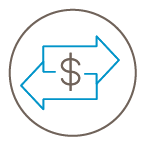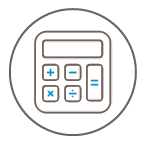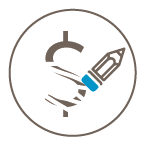What to Know About Student Loans
Avoiding Default
Successfully paying off your student loans is a huge accomplishment and offers some great benefits. Perhaps most importantly, you start building a good credit history, which can make it easier to borrow for big purchases like a house or car.
But, if you don’t make loan payments for 270 or more days, your loan enters default. Why does this matter? Because default can hurt you financially in some long-lasting and serious ways.
- Seven consequences of student loan default
- Your wages could be garnished.
A percentage of each paycheck you receive may be withheld to repay your loans. - You’ll have to pay any collection fees and costs.
You will be responsible for paying collection fees and costs associated with collecting on your loan. This can substantially increase your loan balance. - Your credit will be damaged, which will affect your ability to borrow.
Defaulting could make it hard for you to borrow or to borrow at a favorable interest rate. - Tax refunds will be withheld.
Your loan holder could seize your tax refund and other federal payments to which you are entitled. - You could be sued.
Your loan holder may take legal action against you to force you into repayment. - Professional licenses or certifications could be withheld.
To have a license reinstated, you must have an established repayment arrangement with your loan holder. - You won’t be eligible for federal financial aid.
If you default, you’ll be ineligible for more financial aid unless your eligibility is reinstated.
- Your wages could be garnished.
- I’m having repayment problems. What should I do?
If you’re having problems repaying your loan, contact your loan holder. They do not want you to default and will work to get you back on track or offer a deferment or forbearance if you qualify. - My loan is already in default. What are my options?
If your loan is in default, you can take positive steps by entering into a loan rehabilitation agreement with your loan holder or servicer. They can remove any record of default from your credit report if you make nine voluntary, on-time, full monthly payments during a period of 10 consecutive months. That’s great for your financial future!
Also, after six consecutive payments, you become eligible again for more federal student aid, which you might need if you have to finish your degree or certificate program.
Learn more about loan rehabilitation.






